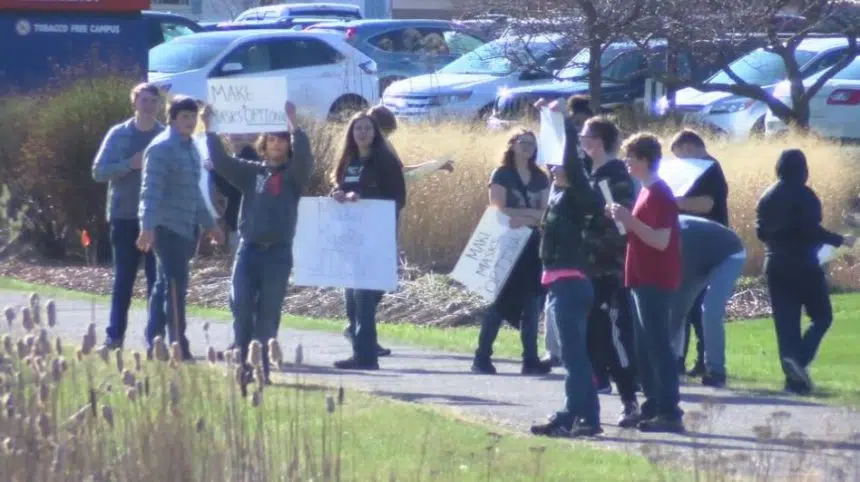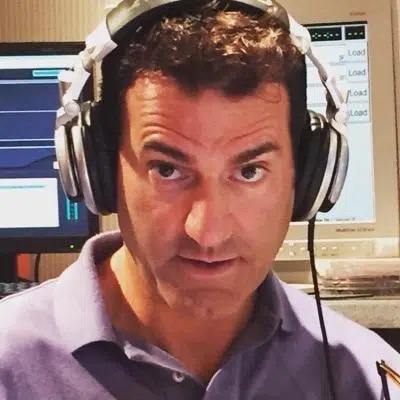
Students protest mask requirements at Medford High School. Image courtesy: WAOW TV
WAUSAU, WI (WSAU) – Wausau Mayor Katie Rosenberg is set to join Wisconsin law enforcement officials and Jewish community members on a panel to discuss the right to freedom of speech.
The interview will be conducted by WSAW’s Emily Davies, and the panel will include Wisconsin Attorney General Josh Kaul, Anti-Defamation League Associate Regional Director Trent Spoolstra, Jewish Community Relations Council Project Manager Allison Hayden, Wausau Police Patrol Captain Todd Baeten, and Mount Sinai Congregation Vice President Andrew Lynch.
According to a press release, the panel will discuss topics such as whether hate speech is protected by the First Amendment and whether there can be limits to public speech.
“Over the last few years, we’ve had a couple of incidents locally and all kinds of reports nationally where whole communities were targeted with insults, stereotypes, and even violence because of their backgrounds, their religion, their skin color, or their gender expression,” Mayor Katie Rosenberg said. “I want to give our community information and tools so they understand protected speech and what they can do to create a more inclusive community.”
Wausau Police Chief Mat Barnes also weighed in on the panel, saying, “The Wausau Police Department works every day to be responsive to our community. Realizing that many community members are dissatisfied with our response to what they consider hate speech during more recent incidents, we’ve accepted the limitations of what our officers can do to address offensive and disturbing speech that’s also constitutionally protected. I’m hopeful this discussion will help our community learn and grow together.”
This debate has been circling communities around the nation in recent months, and several officials, including Sen. Ben Cardin (D-MD), a lawyer, have stated that “if you espouse hatred, you are not protected under the First Amendment.” Former Democratic presidential candidate Howard Dean has also stated, “Hate speech is not protected by the First Amendment.”
Professor of Public Interest Law at George Washington University Law School Jonathan Turley wrote about this issue in an op-ed in The Hill, stating, “While the Supreme Court has allowed limited exceptions, it does not bestow on the government the open right to strip protection of speech because it is deemed hateful. Indeed, in Brandenburg v. Ohio, a 1969 case involving “violent speech,” the court struck down an Ohio law prohibiting public speech that was deemed to promote illegal conduct. It supported the right of the Ku Klux Klan to speak out, even though it is a hateful organization. Likewise, in RAV v. City of St. Paul in 2011, it struck down a ban on any symbol that “arouses anger, alarm, or resentment in others on the basis of race, color, creed, religion, or gender.”
According to the ACLU, some protected speech can be restricted in small ways by the government by imposing “time, place, and manner” limits. Most typically, this is accomplished by demanding permits for meetings, rallies, and demonstrations. However, a permit cannot be denied arbitrarily, nor can it be denied based on the content of the speech. The U.S. Supreme Court has ruled that those actions are viewpoint discrimination and is unconstitutional.
The panel will be interviewed at the UW Center for Civic Engagement in Wausau on Monday, September 18th, from 11 a.m. to 1 p.m.




Comments